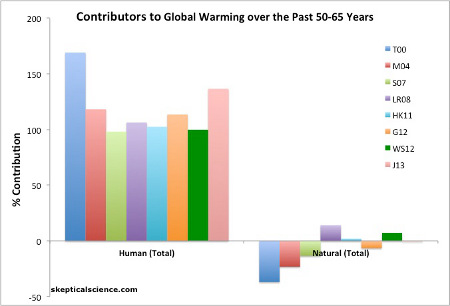
ShutterstockOur gamble may lead to an unstable future climate.
Humans are generally very risk-averse. We buy insurance to protect our investments in homes and cars. For those of us who don’t have universal healthcare, most purchase health insurance. We don’t like taking the chance — however remote — that we could be left unprepared in the event that something bad happens to our homes, cars, or health.
Climate change seems to be a major exception to this rule. Managing the risks posed by climate change is not a high priority for the public as a whole, despite the fact that a climate catastrophe this century is a very real possibility, and that such an event would have adverse impacts on all of us.
For example, in my job as an environmental risk assessor, if a contaminated site poses a cancer risk to humans of more than 1-in-10,000 to 1-in-1 million, that added risk is deemed unacceptably high and must be reduced. This despite the fact that an American man has a nearly 1-in-2 chance of developing and 1-in-4 chance of dying from cancer (1-in-3 and 1-in-5 for an American woman, respectively).
To that 42 percent chance of an average American developing cancer in his or her lifetime, we’re unwilling to add another 0.001 percent. The reason is simple — we really, really don’t want cancer, and thus consider even a small added risk unacceptable.
Yet we don’t share that aversion to the risks posed by human-caused climate change. These risks include more than half of global species potentially being at risk of extinction, extreme weather like heat waves becoming more commonplace, global food supplies put at risk by this more frequent extreme weather, glaciers and their associated water resources for millions of people disappearing, rising sea levels inundating coastlines, and so forth.
This isn’t some slim 1-in-a-million risk; we’re looking at seriously damaging climate consequences in the most likely, business-as-usual scenario. The forthcoming fifth IPCC report is likely to state with 95 percent confidence that humans are the main drivers of climate change over the past 60 years, and the scientific basis behind this confidence is quite sound. It’s the result of virtually every study that has investigated the causes of global warming.

The percentage contribution to global warming over the past 50-65 years is shown in two categories, human causes (left) and natural causes (right), from various peer-reviewed studies (colors).
Yet in a recent interview with NPR, climate scientist Judith Curry, who has a reputation for exaggerating climate science uncertainties, claimed that based on those uncertainties, “I can’t say myself that [doing nothing] isn’t the best solution.”
This argument, made frequently by climate contrarians, displays a lack of understanding about risk management. I’m uncertain if I’ll ever be in a car accident, or if my house will catch fire, or if I’ll become seriously ill or injured within the next few years. That uncertainty won’t stop me from buying auto, home, and health insurance. It’s just a matter of prudent risk management, making sure we’re prepared if something bad happens to something we value. That principle should certainly apply to the global climate.
Uncertainty simply isn’t our friend when it comes to risk. If uncertainty is large, it means that a bad event might not happen, but it also means that we can’t rule out the possibility of a catastrophic event happening. Inaction is only justifiable if we’re certain that the bad outcome won’t happen.
Curry is essentially arguing that she’s not convinced we should take action to avoid what she believes is a very possible climate catastrophe. That’s a failure of risk management. I wonder if she would also advise her children not to buy home or auto or health insurance. Maybe they’ll be a wasted expense, or maybe they’ll prevent financial ruin in the event of a catastrophe.
Climate change presents an enormous global risk, not in an improbable 1-in-a-million case, but rather in the most likely scenario. From a risk management perspective, our choice could not be clearer. We should be taking serious steps to reduce our impact on the climate via fossil fuel consumption and associated greenhouse gas emissions. But we’re not. This is in large part due to a lack of public comprehension of the magnitude of the risk we face; a perception problem that social scientists are trying to determine how to overcome.
At the moment, climate change looks like humanity’s greatest-ever risk management failure. Hopefully we’ll remedy that failure before we commit ourselves to catastrophic climate consequences that we’re unprepared to face.
 This story first appeared on the Guardian website as part of the Climate Desk collaboration.
This story first appeared on the Guardian website as part of the Climate Desk collaboration.



